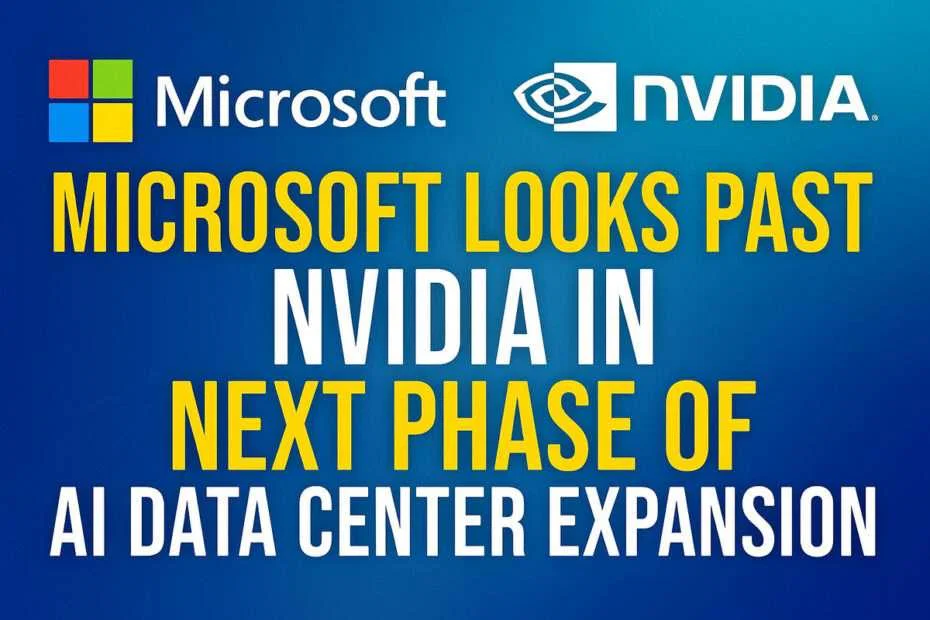Microsoft is charting a course to reduce its long-term dependence on Nvidia’s AI chips by developing its own in-house hardware. This strategic shift was detailed by Chief Technology Officer Kevin Scott, who explained that the company is building extensive plans to ultimately fulfill its data center needs without relying on third-party providers.
Speaking at a recent Italian Tech Week discussion moderated by CNBC, Scott clarified Microsoft’s pragmatic approach. The company, he noted, doesn’t place its “faith” in any single AI accelerator brand. Instead, its strategy is to adopt whatever solution, whether internally developed or sourced from a partner, delivers the optimal balance of price and performance.
While acknowledging that Nvidia’s GPUs have been the industry standard for years, powering the ambitions of Microsoft and other tech giants, Scott stated that the company “will literally entertain anything to ensure we have enough capacity to meet this demand.”
This idea is already being put into action. Microsoft’s current data centers operate on a diverse array of accelerators from partners like Nvidia and AMD. However, the cornerstone of its future strategy lies in its own silicon, such as the Arm-based Cobalt CPU and the dedicated Maia AI accelerator. Scott confirmed that the next generation of this proprietary hardware is already in development.
The ultimate goal extends beyond individual chips. Microsoft aims to engineer complete, end-to-end systems, integrating everything from the silicon to the network and even advanced cooling infrastructure. This holistic control grants the freedom to optimize performance at every level.
This ambition is reflected in the company’s recent announcements, including plans to build what it claims will be the world’s most powerful AI data center, a project that promises a significant leap over today’s top supercomputers and involves innovative microfluidic cooling technologies.
Scott also addressed the broader industry context, pushing back against growing warnings of an AI bubble. From Microsoft’s perspective, the immediate problem is a stark shortage of computing capacity. The explosive demand for AI workloads, ignited by tools like ChatGPT, is creating a “massive” capacity crunch. Corporations are simply unable to scale their infrastructure quickly enough to keep pace, underscoring the critical need for the very solutions Microsoft is racing to build.
Maybe you would like other interesting articles?

